Velo-City 2023, Leipzig: Leading the transition
In May, the Qucit team traveled to Leipzig in Germany to attend the Velo-City 2023 conference.
Velo-City is considered the world's first annual bicycle summit, acting as a global platform for knowledge exchange. The conference brings together all those involved in the policy and promotion of cycling, active mobility and sustainable urban development. After Velo-City 2022 in Ljubljana, Leipzig hosted Velo-City 2023. The tradeshow took place from May 9 to 12, 2023, under the theme "Leading the transition".
For Qucit, the Velo-City conference was an opportunity to attend the event for the third year running with the Cycling Industries Europe! This edition was also an opportunity for Raphaël to take part in the "Bike sharing as public infrastructure" conference on the subject of greening bike-sharing systems.
Velo-City 2023 was once again an inspiring event where many players were able to showcase their initiatives to enable "re-vélo-tion"!
Bike sharing as public infrastructures
Bike-share systems work best when they are part of a city's overall transportation vision and network. They are real levers for meeting the mobility, sustainability, equity and economic challenges of tomorrow. They must therefore be recognized as a public service, fully integrated into the existing mobility offer.
Take a shared bike, make it electric and add it to the public transport ticket, what happens next? - Randi Markvardsen, Kolombus
The Norwegian city of Stavanger has understood the importance of integrating shared bikes into the public transport network. During this session, Randi Markvardsen had the opportunity to look back on the success of Stavanger's City Bikes. In 2014, when the shared bike industry was in its beginning, the city of Stavanger and Kolombus decided to implement 6 electric shared bikes. In 2017, the two players wanted to expand the system, but came up against the bankruptcy of the bike supplier. The problem was a major one: they had to find electric bikes capable of withstanding the climatic conditions of Northern Europe. With seven local partners, they designed their entire system of 900 shared electric bikes. The launch took place in 2020, and was an immediate success: bike use has increased by a factor of 3 since the pilot began. What's more, up to 1,500 shared bike journeys a month are replacing car journeys! The reasons for this success? Randi explains that the adoption of shared bikes by local residents is primarily due to the station-based, all-electric system. She also believes that the long-term vision that the City of Stavanger and Kolombus have adopted plays a crucial role in the successful development of the shared bike system. Finally, the collaboration with local companies has also enabled employees to make massive use of City Bikes.
Credits: Kolombus AS
Thinking (even) greener bike sharing systems - Raphaël Cherrier, CEO
The conference was also an opportunity for Raphaël to talk about the greening of shared bike fleets. In recent years, bike-sharing has become one of the symbols of the fight against climate change in cities. Easy to use, affordable and available at all times, bike-sharing is becoming increasingly popular! However, it has to be said that, in the past, bike sharing has been a major source of waste. We all remember the bicycle graveyards left in China by operators obsessed with expansion and quickly caught up by the reality of profitability. Without going to extremes, it's good to know that bike-sharing systems are not totally carbon-neutral, not least because maintenance operations are very often carried out with combustion-powered vehicles. So, Raphaël went back over the different possibilities offered to cities and operators to reduce the carbon footprint of shared bike systems: before, during and after the operation.
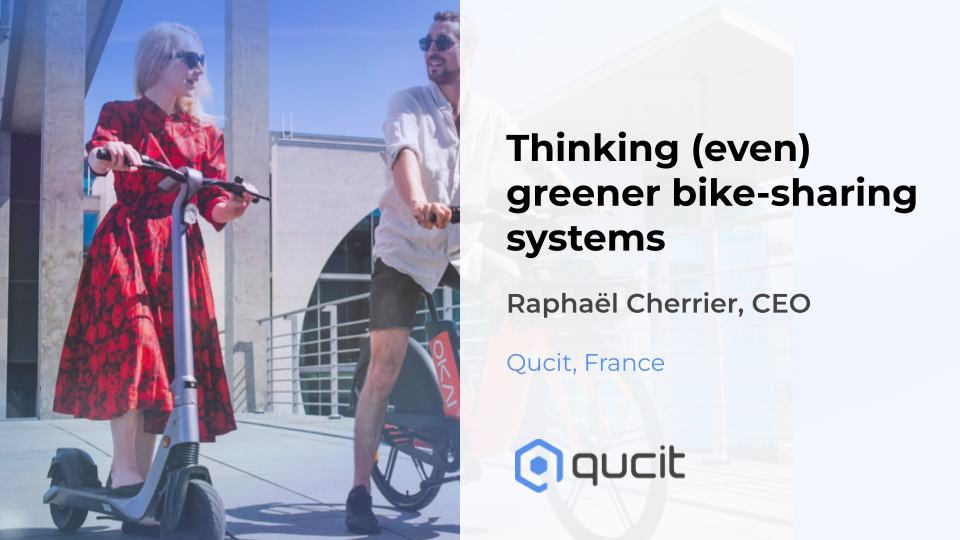
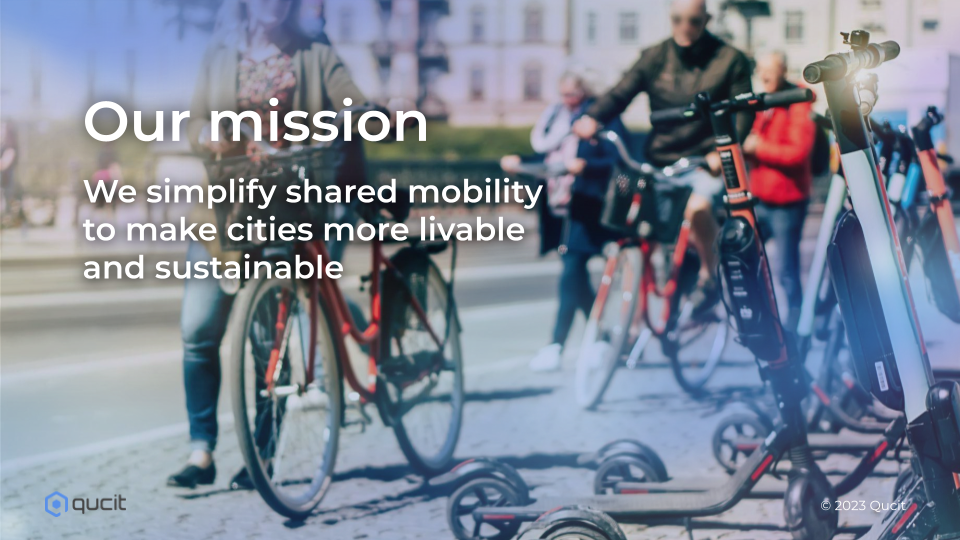
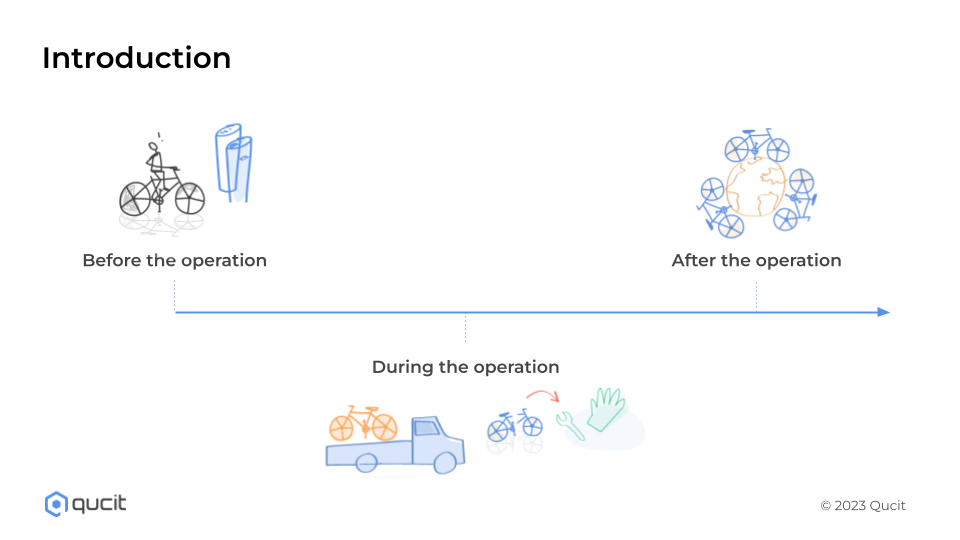
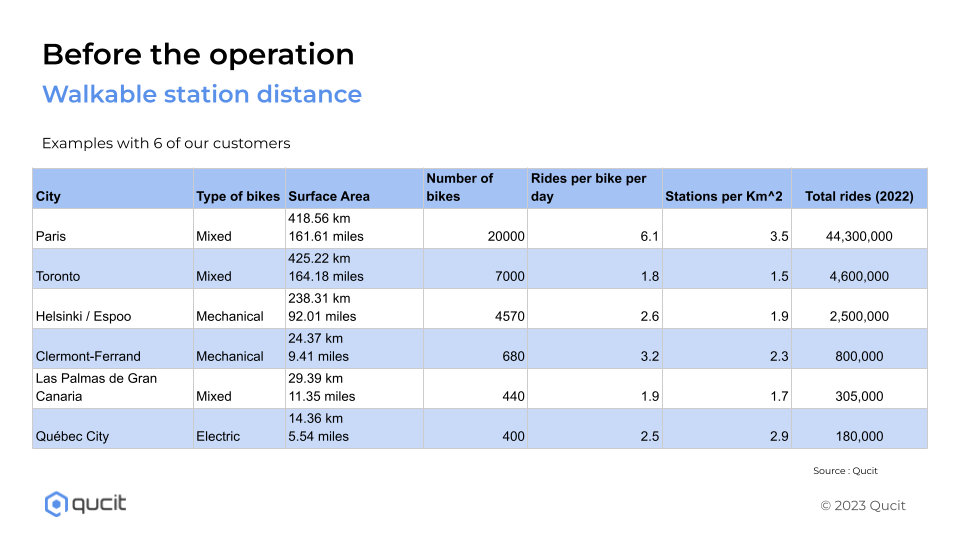
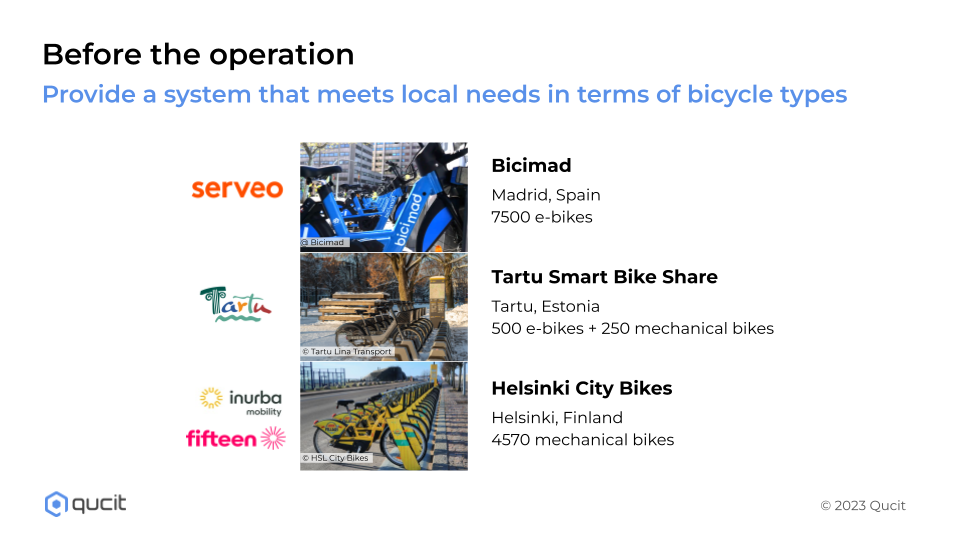
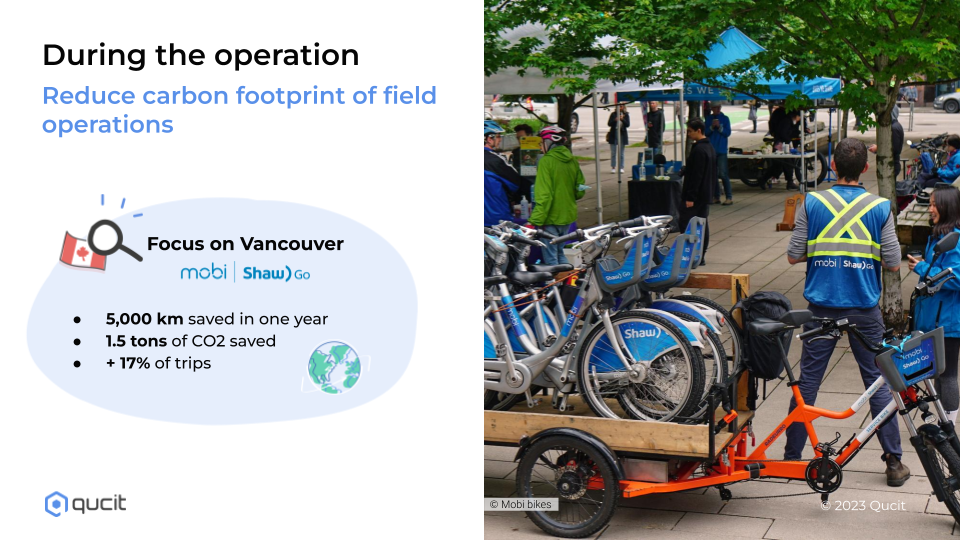
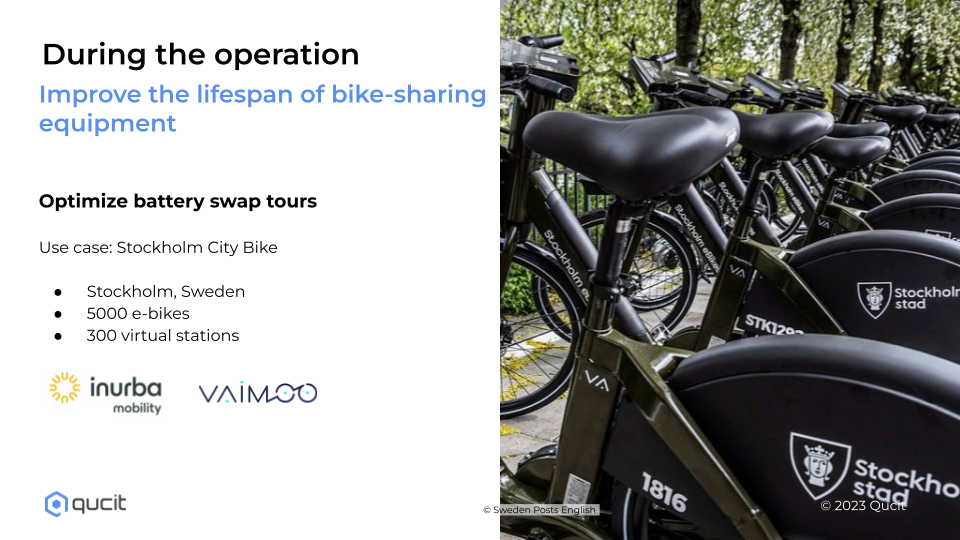
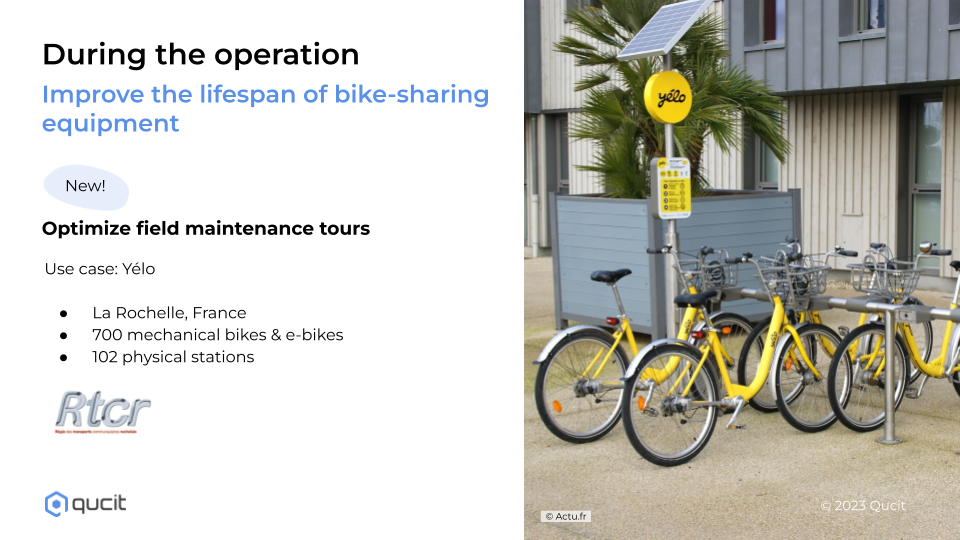
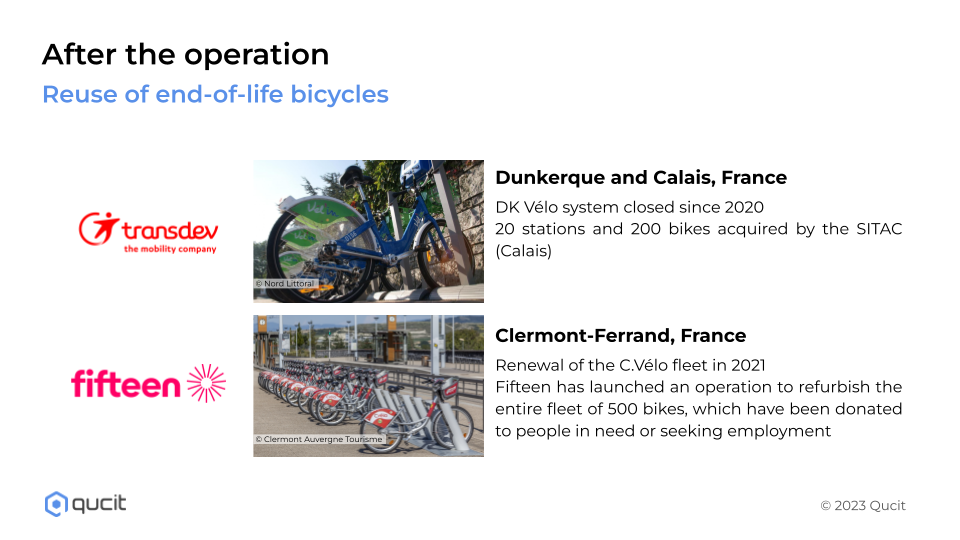
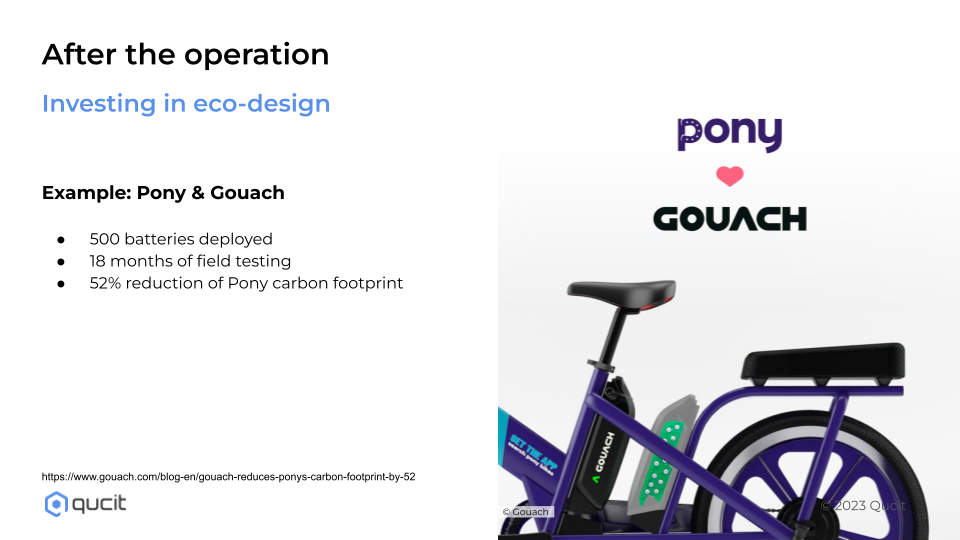

Transforming urban space to livable cities
Cities with a high modal share of cycling know that reallocating public space to active mobility revitalizes neighborhoods and offers a better quality of life. Cycling-friendly cities don't shy away from major projects such as transforming old ring roads into high-quality spaces.
From city ring to park: how a citizens initiative can redefine public space in the city of Amersfoort? - Esther van Garderen, Fietsersbond
Esther van Garderen presented an inspiring example of citizen initiative in the Dutch town of Amersfoort. Before the 1960s, the town of Amersfoort was surrounded by parks and canals. Gradually, between the 60s and the 80s, the parks and canals were replaced by a road to make it easier for motorists to cross the city. In 2020, citizens began to express their desire to return to a calmer, more pedestrianized city. The "Van Ring Naar Park" collective was born. Their goal? To build parks and canals in place of the city's ring road. In the project, the banks of the canals would allow traffic only for pedestrians and cyclists, and would be surrounded by shops to make for a more pleasant living environment. To consolidate their action, a manifesto was published in 2021. Some local politicians even included the project in their political agenda. Finally, in 2022, the city council adopted the project, which will see the light of day in a few years' time! For Esther, the success of this initiative is down to one simple thing: having a vision that gets everyone excited.
Credits: Van ring naar park
How cargo-bikes drive change
The secret is out: cargo bikes for individuals or families offer a real solution for making private motorized vehicles even less essential. Many local authorities are equipping themselves with shared bike-cargo systems to offer their residents low-carbon modes of transport.
Shared cargo bikes throughout the city help reach CO2-reduction goal 6 Rinse Gorter, City of the Hague, Netherlands
The Hague is the most densely populated city in the Netherlands, with 6,700 inhabitants per square kilometer, making it an ideal location for urban mobility experiments! Two companies are offering shared cargo bikes to residents: Cargoroo and Baqme. Convinced by the success of these two systems, the city aims to have 1,500 shared cargo bikes on its territory by 2027! To achieve this, the services must remain affordable for all residents, and provide operators with an income to ensure the sustainability of the service over time. The ultimate goal? To have a shared cargo bike on every street in La Haye!
Credits: Baqme
See you next year for Velo-City 2024 in Ghent, Belgium!




